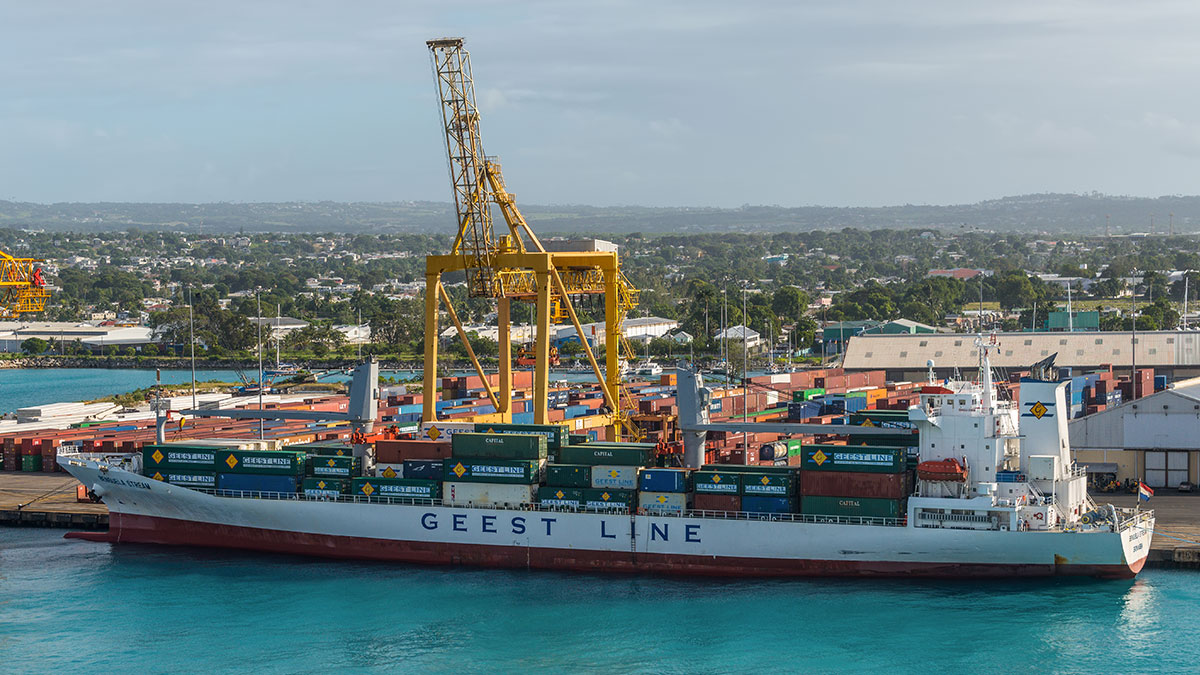First national workshop: Enhanced statistics for evidence-based climate action in maritime trade, transport and fisheries in Barbados

©AdobeStock
Background
As Small Island Developing State, Barbados strongly relies on the ocean for its economic development and generation of welfare. The ocean not only provides fish, algae and other precious aquatic products, including plastic substitutes; it also gives Barbados invaluable opportunities for the importation of and exportation of goods worldwide. Like other economic sectors, the ocean economy must participate in global efforts for the reduction of global greenhouse gas emissions, a main source of global warming. This goal is especially important for island states like Barbados where the rising sea level and extreme weather events cause especially strong impacts.
To manage the transition towards a low-carbon ocean-based economy successfully, Barbados requires strong analytical and statistical capacities. Strengthening these capacities is a primary aim of the project “Evidence-based Climate Action through Artificial Intelligence and Data Innovation for Caribbean SIDS”, organized by the United Nations Department on Economic and Social Affairs (UNDESA) and UN Trade and Development (UNCTAD), in which Barbados participates as a pilot country. More specifically, the project will support Barbados in leveraging satellite data from the Automatic Identification System for the tracking of vessel movements, made available through the UN Global Platform, in combination with national sources, to produce modern and high-quality GHG emission statistics for maritime trade, maritime transport and fisheries, coherent with international trade statistics and national accounts. The project will also assist Barbados in using these data for analysis and the development of policy recommendations to manage the transition towards a low-carbon blue economy, seizing the new opportunities arising from that transition. This workshop, jointly organized by the Barbados Fisheries Division, the Barbados Statistical Service, UNDESA and UNCTAD, will kick off the activities for that project in Barbados.
Goals and intended outcomes
The goals of the workshop are to:
- Make statistics producers and users in Barbados aware of the objectives of the project and promote dialogue between main users and producers of the envisaged statistics
- Ensure close match between the project objectives and the users’ needs in Barbados
- Identify related initiatives in Barbados and the Caribbean on which the project can build and to which it can contribute
- Outline and discuss a basic method for using AIS data in combination with national data sources for the compilation of statistics of maritime trade, maritime transport and fishery and their CO2 emissions
- Explore the pre-requisites in Barbados for the implementation of the method above
- Establish collaboration between the national statistics office and organisations that can contribute to the delivery and compilation of data
The workshop should yield as outcomes:
- an outline of the content and structure of the envisaged statistics on maritime trade, maritime transport and fisheries and their emissions
- a shared understanding of the statistical method to be applied, tailored to the resources and needs in the country
- a plan for a production system for the envisaged statistics
- a definition of roles for the involved agencies, with regards to provision of source data, data compilation and hosting and dissemination of the statistics
- agreements across agencies about data exchange
Audience
Open to government officials, national statistics producers, fisheries experts, civil society, academia, and international partners.



